Can You Drive After a DWI Arrest?
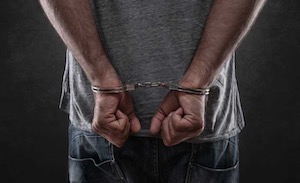 If you are arrested for DWI in Durham NC, you may be wondering what happens to your driver's license.
If you are arrested for DWI in Durham NC, you may be wondering what happens to your driver's license.
Can you still drive after a DWI?
What are the penalties for driving while impaired?
In this webpage, we will discuss the consequences of a DWI arrest in North Carolina and what steps you can take to protect your driver's license.
Right After an ArrestIf you are arrested or charged with DWI, the officer may take your driver's license if authorized by the NC DWI laws (See: N.C.G.S. 20-16.2 and N.C.G.S. 20-16.5).
That is often referred to as a “Civil Revocation.” A Civil Revocation is applicable:
- When you refuse a breath or blood or urine test OR
- If you have a BAC of .04 as a CDL (Commercial Vehicle) OR
- If you have a BAC of .08 as a Class C licensee OR
- If you’re under 21 years old and have a .01 BAC or more
A breath test after a DWI arrest is common and may be the basis for a driver's license suspension. That’s also true for blood tests.
BAC refers to Blood Alcohol Content or Blood Alcohol Concentration. It reflects the blood alcohol level for either breath or blood tests. Breath tests estimate the amount of ethyl alcohol in the blood stream.
You may request a hearing with either a District Court Judge or Magistrate to challenge the 30-Day Civil Revocation and seek reinstatement of your driving privileges. There is a very limited time to do so and there must be legitimate legal grounds to challenge the initial, Civil Revocation. Failure to timely challenge the Civil Revocation results in the waiver of the ability to do so.
Challenging the Civil Revocation is different than a DMV Hearing regarding an alleged Willful Refusal. It is also separate and apart from any issuance of a Pretrial Limited Driving Privilege, as may be appropriate.
The legal standard regarding whether your license to drive may be revoked or suspended in North Carolina is whether the law enforcement officer had "reasonable grounds" to believe you are in violation of the implied consent law.
Reasonable Grounds is synonymous with the term Probable Cause in North Carolina. It is not the same thing as Beyond a Reasonable Doubt. It is also not the same as Reasonable Suspicion.
If you have questions about the legal standards associated with challenging a Civil Revocation or your eligibility to obtain a Limited Driving Privilege, call Cole Williams now to schedule a consultation.
What is a Pretrial Limited Privilege?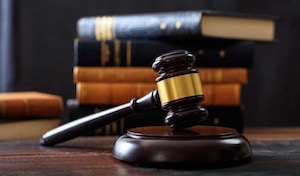 If your driver's license is suspended after a DUI arrest, you may be eligible for a type of limited driving privilege. It’s called a pretrial limited driving privilege.
If your driver's license is suspended after a DUI arrest, you may be eligible for a type of limited driving privilege. It’s called a pretrial limited driving privilege.
If issued, a limited privilege allows you to drive to and from certain places, like work or school, during your period of revocation or suspension.
A Pretrial Limited Driving Privilege is a type of temporary license. Some people call it a "hardship license" or "work privilege."
There are several requirements you must meet before it may be granted.
For example, your driver's license must have been valid at the time when you were charged or arrested (or not expired for more than a year).
You also will be required to submit proof of a Substance Abuse Assessment. Proof of insurance is also required as indicated within a DL-123 form.
If you are granted a pretrial limited privilege when your driver's license is suspended due to DUI charges, it is important to understand may be significant restrictions on where and when you can drive.
The Court (the Judge) decides whether to grant a temporary license. There are requirements under the law. The Judge may set conditions (restrictions) when granting limited driving privileges. The Court may not issue a Limited Privilege if it is not authorized by statute. If improperly granted, NCDMV may refuse to acknowledge the validity of the Limited Privilege.
How Long Does a Pretrial Limited Driving Privilege Last?A Pretrial Limited Driving Privilege (LDP) allows you to drive for specific purposes only, such as work, school, or medical appointments. You are not allowed to have any amount of alcohol in your system when driving on a limited privilege.
It is ordinarily valid for approximately 20 days, depending on when the revocation period is entered and when the 10 day “hard suspension” is completed.
Each case is different.
That’s why it makes sense to seek the legal advice of n experienced DWI lawyer in Durham to carefully analyze the specifics of your case and determine your ability (or inability) to obtain a Pretrial Limited Driving Privilege.
During the first 10 days of the Civil Revocation, there is no type of hardship license or limited privilege authorized under the law.
You may become eligible to apply for a Pretrial Limited Privilege after the expiration of that first portion of the Civil Revocation.
Again, each case is different and there are important conditions precedent to even apply of a Limited Privilege.
To be clear, you must have a valid license (or Court Order) authorizing you to drive in North Carolina.
A Limited Privilege is a type of Court Order.
If you operate a vehicle after a DUI charge on a revoked license (while your license is revoked), criminal charges for Driving While License Revoked - Impaired Revocation may be appropriate.
That is a serious criminal charge in North Carolina.
While most people are arrested for DWI, an arrest is not required.
Your driver's license may be revoked under the NC DWI laws without an arrest.
As such, following the 10 day “hard suspension,” driving privileges (which are a type of restricted license) may be authorized to provide for the possibility to drive from day 11 to day 30 of still-in-effect Civil Revocation.
Most people understand a DWI conviction carries the potential for serious consequences. We recommend you immediately consult with a DUI attorney.
A criminal defense attorney can explain what will happen at your upcoming court appearance, when any suspension period begins or revocation period ends, and discuss any defenses you may have to the charges.
What is the Civil Revocation Fee?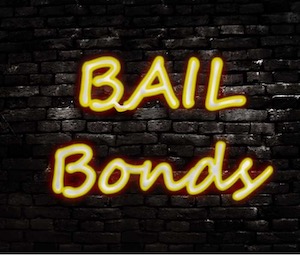 At the expiration of the 30-day Civil Revocation of your driver's license, you may pay the $100 Civil Revocation Fee.
At the expiration of the 30-day Civil Revocation of your driver's license, you may pay the $100 Civil Revocation Fee.
If this fee is not paid, your driving privileges will remain revoked until it is paid.
The Civil Revocation Fee is in addition to any other fees or penalties that may or will be imposed as a result of your DWI arrest and/or conviction.
That is not to say every DWI charge in NC results in a conviction or even a license suspension or revocation.
The Civil Revocation Fee is paid at the cashier's office of the Clerk of Court in Durham County (the county where the DWI charges have been brought). The Civil Revocation fee is not paid at NCDMV (Department of Transportation Division of Motor Vehicles).
What Happens if I Refuse to Take the Chemical Test?If you refuse to take the chemical test, your driver's license can be suspended for one year.
Refusing to take a breath or blood test when required is formally known as a Willful Refusal.
In some cases, you may be eligible for a Willful Refusal Limited Driving Privilege which could allow you to drive for certain purposes. There are substantial conditions precedent that apply.
Obtaining a valid Limited Privilege (whatever the type or form) can be problematic for underage drivers, people with a prior DWI conviction and those who refuse the breath test (or blood sampling).
If your BAC is .15 or higher, an Ignition Interlock Device (IID) is required under the law.
You may also be required to install an Ignition Interlock Device on your vehicle as a condition of restoration/reinstatment of your license.
Prior to reinstatement, you may also be required to submit proof of completion of a DUI education program and/or any recommended treatment consistent with a Substance Abuse Assessment.
License revocation and restoration issues, relative to DWI charges in North Carolina, are notoriously complicated.
We strongly recommend you establish an attorney client relationship if your driver's license is suspended due to an alleged Willful Refusal.
I Didn't Refuse to Blow but They Still Marked Me as a Willful Refusal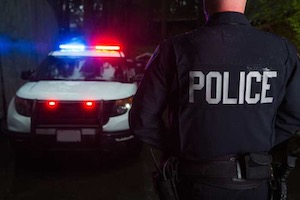 What Does That Mean for My License?
What Does That Mean for My License? A Willful Refusal is when you refuse to take a chemical test after being asked to do so by a law enforcement officer.
This may result in the suspension of your license for 12 months, even if it's your first DWI offense.
If you are facing charges for impaired driving, it's important to speak with an experienced DWI attorney who can help you understand your rights and options.
Contact us today for a free consultation.
Can I Choose Whether It's a Breath or Blood Test?No, you cannot choose which type of test you would like to take.
The officer will usually ask you to take a breath test first, but if you refuse or are unable to complete the test, then they may ask you to take a blood test.
A Search Warrant also may be issued to obtain a blood sample. Furthermore, in certain, limited circumstances, law enforcement may be legally authorized to compel sampling.
What is the Legal Limit in North Carolina?The legal limit for DWI in North Carolina is technically .079. Any number greater than .079 may be deemed sufficient for a conviction.
So while many people say the “legal limit” is .08, that’s a bit of a misstatement of the law.
It’s important to understand, you can still be charged with DWI even if your blood alcohol content (BAC) is below 0.08. You can also be convicted of DWI if the number is below .08.
The prosecutor can also try to prove that your ability to drive was “appreciably impaired,” also possibly resulting in a DWI conviction.
What Happens if I am Pulled Over and the Officer Thinks I am Impaired?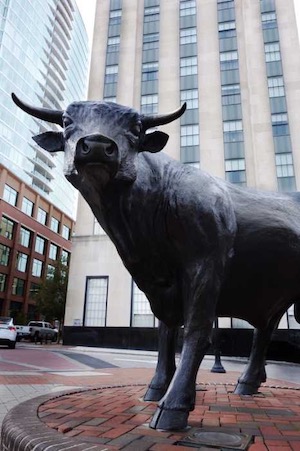 If the officer believes that you are impaired and Probable Cause to Arrest exists, they may place you under arrest and take you to the local jail or law enforcement office.
If the officer believes that you are impaired and Probable Cause to Arrest exists, they may place you under arrest and take you to the local jail or law enforcement office.
At this point, they may read your Miranda rights and given a chance to call an attorney.
You may also be asked to submit a chemical test to determine your BAC.
If you refuse to take the test, you may be subject to a license suspension.
What are Some Common DWI Penalties in North Carolina?The penalties for DWI vary depending on the circumstances of your case, but they can include jail time, probation, community service, and fines.
Each case is different.
If you are facing charges for DWI, it's important to speak with an experienced attorney who can help you understand your rights and options.
An arrest for driving while impaired (DWI) in Durham, North Carolina can have serious consequences.
If you have been arrested for DWI, contact us today for a free consultation.
We can help you understand your rights and options under the law.
What is Probable Cause?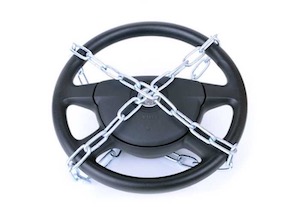 To arrest you for DWI, the officer must have probable cause to believe that you were driving while impaired.
To arrest you for DWI, the officer must have probable cause to believe that you were driving while impaired.
In other words, the officer must have a reasonable belief, based on observable facts, that you were impaired while behind the wheel.
Probable cause can be based on many factors, including:
- Your behavior or demeanor (e.g., slurred speech, red, glassy eyes, stumbling, unsteadiness on your feet)
- Your performance on field sobriety tests (SFSTs)
- The smell of alcohol on your breath or in your car
- An admission to drinking alcohol
- Open containers of alcohol in your car
- Positive Reading of the Alco-Sensor FST (the handheld "breathalyzer on the side of the road)
Under the Implied Consent Law of NC, police may request you submit to a chemical test of your breath, blood or urine to determine your blood alcohol concentration (BAC).
You may refuse this test, but doing so comes with consequences.
Do I Need a Lawyer for DWI Charges?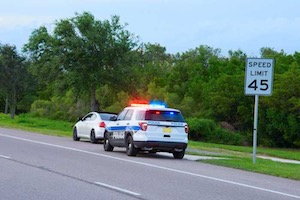 If you have been arrested for DWI in Durham, we think it is important to speak with an experienced criminal defense attorney and establish a formal attorney client relationship as soon as possible.
If you have been arrested for DWI in Durham, we think it is important to speak with an experienced criminal defense attorney and establish a formal attorney client relationship as soon as possible.
After a DUI arrest, an attorney can help you understand the charges against you and the possible penalties.
Defense lawyers research the charges, prepare important legal filings, including applying for driving privileges, and advise you of your legal options.
If you have been arrested for DWI, contact The Law Office of Cole Williams today to schedule a free consultation.
Durham DWI attorney Cole Williams is here to help you through this difficult time.
We offer a confidential, free initial consultation.
Is There a Difference Between DUI and DWI and Drunk Driving?The terms DUI, DWI, and drunk driving are often used interchangeably, but they do have different meanings.
A lot of people use the term DUI, referring to “driving under the influence” and operating a vehicle while impaired by alcohol.
DWI is also used by people to describe “driving while intoxicated” or "driving while impaired."
Drunk Driving is impaired driving, but you do not need to be "drunk" or "drunken driving" to be charged with driving while impaired in North Carolina.
The NC DWI law (N.C.G.S. 20-138.1) does not specifically reference the terms DUI or DWI or drunk driving. The offense is referred to a "impaired driving.”
A breath or blood test resulting in a .08 may be "deemed sufficient" for a conviction under the law.
A Willful Refusal may be considered in the guilt / innocence phase of a DWI trial in North Carolina.
What is an Ignition Interlock Device?An ignition interlock device is a machine that is installed in your car that tests your breath for alcohol before the car will start.
If the machine detects alcohol on your breath, the car will not start.
After a DWI conviction in North Carolina, you may be required to have an ignition interlock device installed in your car if your BAC is .15 or higher.
What's the First Thing You Should Do After a DUI Arrest?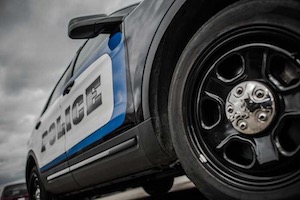 You should consult with a DWI lawyer as soon as possible to discuss your case and what options may be available to you.
You should consult with a DWI lawyer as soon as possible to discuss your case and what options may be available to you.
If you have been arrested for a DUI charge in Durham North Carolina, contact Cole Williams or fill out our online form to schedule a free consultation with a member of our legal team.
Our firm is located near the courthouse in Durham.
We serve clients in Durham County, helping people with criminal charges including things like:
- Drug Charges - Possession, Paraphernalia, Trafficking
- Crimes of Theft - Larceny, Shoplifting, Unlawful Concealment
- Assault & Battery - Assault on Female, Simple Assault, Affray
- Underage Possession of Alcohol
- Traffic Tickets - Speeding, Red Light and Stop Sign Violations
- License Suspension - DMV Hearing - Driving Privileges
- Temporary License - Restricted License - Driver's License Suspension (NC Department of Motor Vehicles - DMV)
- Violation of Interlock Ignition Device
- Bail Bond Hearings - Probable Cause
- Indictments
 Cole Williams Law Home
Cole Williams Law Home